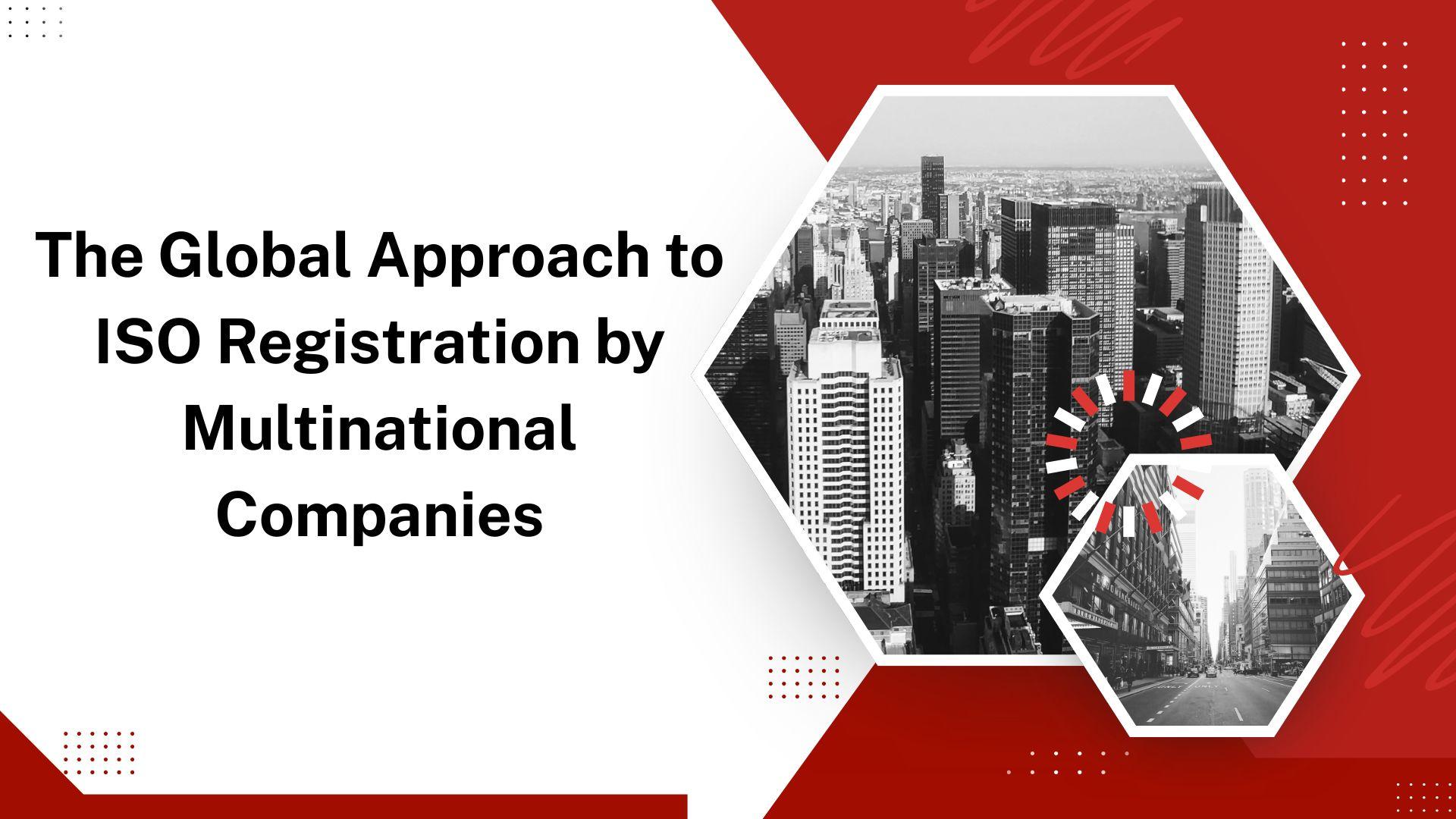In an increasingly globalized business landscape, maintaining consistent quality, environmental, and information security standards across diverse geographies is not just a goal; it's a necessity. For multinational companies (MNCs), obtaining and managing ISO Certification globally has become a critical part of ensuring operational excellence, regulatory compliance, and brand credibility.
International Organization for Standardization (ISO) standards, such as ISO 9001 (Quality Management), ISO 14001 (Environmental Management), and ISO 27001 (Information Security), serve as global benchmarks for best practices. While small businesses may pursue ISO certification locally, multinational organizations must adopt a far more strategic, scalable, and region-specific approach to registration, implementation, and compliance.
This article explores how multinational companies manage ISO registration across countries, overcome global challenges, and align their corporate systems with international standards.
Why ISO Registration Is Crucial for Multinational Corporations
ISO certification provides several tangible and intangible benefits to multinational enterprises, including:
-
Global market access and competitive edge
-
Unified quality and risk management framework
-
Enhanced customer trust and stakeholder confidence
-
Compliance with local and international regulations
-
Improved supply chain integrity and partner alignment
For a multinational brand, ISO standards signal uniformity, credibility, and a dedication to excellence—regardless of geography.
Centralized vs Decentralized Certification Approaches
Multinational companies typically choose between two primary models for ISO registration:
1. Centralized Certification (Corporate Level)
In this model, the headquarters or central office obtains a multi-site certification that applies to all locations or subsidiaries under a shared quality management system (QMS). Benefits include:
-
Consistency across sites
-
Streamlined audits and documentation
-
Cost savings due to group certification
-
Unified corporate compliance strategy
2. Decentralized Certification (Local or Regional Level)
Here, each business unit, region, or subsidiary obtains its own ISO certificate. This is often done when:
-
Subsidiaries operate independently
-
Business units face differing local regulations
-
Markets require region-specific certifications
Many MNCs adopt a hybrid approach, centralizing certain ISO standards (e.g., ISO 27001 for corporate IT infrastructure) and decentralizing others (e.g., ISO 22000 for food safety in manufacturing plants).
Key ISO Standards Commonly Adopted by Multinational Companies
Different industries require different standards. Multinationals commonly implement:
-
ISO 9001 – Quality Management Systems
-
ISO 14001 – Environmental Management Systems
-
ISO 27001 – Information Security Management
-
ISO 45001 – Occupational Health & Safety
-
ISO 22000 – Food Safety Management
-
ISO 50001 – Energy Management Systems
Some multinational conglomerates pursue multiple standards simultaneously through integrated management systems (IMS), which combine policies, procedures, and audits.
The Global ISO Registration Process for Multinational Enterprises
Managing ISO certification globally involves several stages, each of which must be customized to the company’s size, structure, and geography:
1. Gap Analysis & Planning
-
Assess current operations against ISO standards
-
Identify compliance gaps across different regions
-
Develop a centralized roadmap and local implementation plans
2. System Design & Documentation
-
Create corporate-level policies that align with ISO standards
-
Customize documents (SOPs, work instructions) for local use
-
Translate documentation if necessary to meet regional requirements
3. Training & Awareness
-
Conduct global training programs for employees
-
Train internal auditors across different offices
-
Assign ISO coordinators in each country or region
4. Implementation & Monitoring
-
Implement processes across facilities and business units
-
Use software or enterprise systems to track performance indicators
-
Monitor non-conformities and corrective actions centrally
5. Internal Audit & Review
-
Schedule internal audits by qualified auditors
-
Hold regular management reviews to analyze compliance trends
-
Coordinate region-specific audits before external certification
6. External Audit & Certification
-
Select ISO certification bodies with a global presence (e.g., TÜV SÜD, BSI, DNV)
-
Coordinate audits across multiple time zones and languages
-
Maintain open communication between auditors, corporate teams, and local offices
Best Practices for Global ISO Certification Success
Leading multinational companies follow proven strategies to manage global ISO registration effectively:
1. Establish a Global ISO Team:Set up a central ISO management team that oversees implementation, coordinates audits, and maintains communication with regional managers.
2. Use Cloud-Based QMS Software:Digital quality management systems allow real-time document sharing, monitoring, and tracking of corrective actions globally.
3. Partner with a Globally Accredited Certification Body:Choose certification partners with international audit capabilities and local presence to ensure consistency and cultural understanding.
4. Customize Without Compromising Standards:While maintaining global standards, allow regional flexibility in process documentation, training style, or implementation pace.
5. Align ISO Goals With Business Strategy:Make ISO compliance part of strategic goals, not just a certification checkbox. Use ISO frameworks to improve global productivity, sustainability, and customer satisfaction.
The Role of ISO in Global Branding and Market Expansion
ISO certification strengthens a company’s global brand identity. It tells customers, investors, and partners that the business:
-
Operates to internationally accepted standards
-
Is committed to quality, safety, and compliance
-
Has systems in place for continuous improvement
For multinationals entering new markets, ISO registration often acts as a passport, easing regulatory approvals and building trust in new geographies.
Also Read: How to get the ISO(9001) certification process in India
Conclusion
Managing ISO registration globally is a complex but strategic endeavor for multinational companies. Whether it's ISO 9001 for quality or ISO 27001 for data security, a global certification framework brings consistency, credibility, and compliance to international operations.
By leveraging centralized systems, localized execution, and technology-driven quality management, multinationals can successfully align global operations with international standards—creating a culture of excellence that spans borders and benefits every stakeholder.



